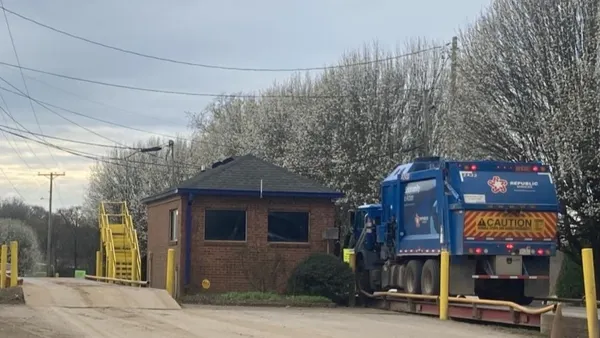Dive Brief:
- As one of several landfill host cities in Orange County, CA, San Juan is holding out for a larger share of the county's revenues for the trash imported into Prima Deshecha Landfill and wants changes to trash truck routes through the city.
- The city is unhappy with a current proposal where San Juan’s ratification payment as a host would be 1.23% of the county's funds spread among the host cities. The municipality deferred ratifying an agreement for the county landfill to continue importing trash.
- The county will likely offer a new memorandum of understanding (MOU) to San Juan at its next meeting on April 19. Orange County Waste and Recycling Director Dylan Wright said all host cities must agree to the plan by April 20 to be sure to save the contracts with outside cities, according to the Orange County Register.
Dive Insight:
Without revenue from imported trash, the county would have a hard time managing its own trash—at least in a way that’s economically feasible, especially as recycling and waste-diversion programs have reduced local tonnage and thus cut landfill revenues. This has called for neighboring cities to pull together to contain costs. But San Juan is bucking the system.
"We are being asked to bear the brunt," Mayor Pam Patterson said, as reported in The Orange County Register.
Councilman Sam Allevato questioned the less than 2% payment to San Juan and called it "blatantly unfair," as reported in the Register.
However Wright said compensation is based on trash volume. "San Juan Capistrano takes about 4% of the total imported waste to the county," he explained to the Register. "Brea about 66%, and Irvine about 30%."
San Juan’s city staff asked the City Council to ratify the import agreement, but Patterson has decided to wait and see what the county offers in the soon-to-be presented MOU.
The county is not putting all its eggs into one basket. It recently struck a 20-year deal with Bowerman Power/Montauk to sell electricity generated from methane at another of its landfills—meaning every one of its major disposal sites is running a gas-to-energy plant.








